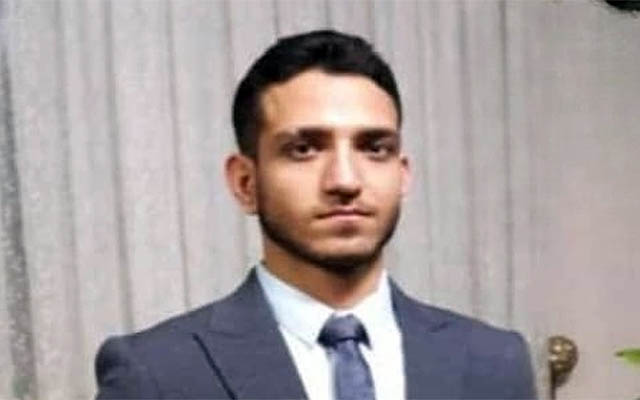20-year-old Arvin Nathaniel Ghahremani hanged in Iranian jail, after being convicted of murder over a killing that was done in self-defense.
By David Rosenberg, World Israel News
An Iranian Jewish man was executed in a prison in western Iran Monday morning, according to a report by a human rights organization.
On Monday, Iran Human Rights, which monitors human rights abuses by the Islamic regime and tracks executions, said that 20-year-old Arvin Nathaniel Ghahremani had been put to death Monday.
According to the Iran Human Rights report, Ghahremani was hanged at Kermanshah Central Prison.
Iranian authorities arrested Ghahremani in 2022, when the then-18-year-old was involved in a fatal brawl with a Muslim man in Kermanshah.
Ghahremani and his supporters say that the killing was a case of self-defense, claiming that the Muslim man had charged Ghahremani while brandishing a knife.
According to court transcripts, the incident occurred while Ghahremani was working out at a gym, when he was accosted by seven Muslim men, including who owed him money.
One of the assailants, Amir Shokri, stabbed Ghahremani, but was killed when Ghahremani managed to grab the knife and wound some of his attackers.
Despite the circumstances, a local court pronounced Ghahremani guilty of murder, sentencing him to death.
A loophole in Iran’s Sharia law would have permitted the state to forgo the death penalty if Ghahremani’s family could have secured the forgiveness of the Shokri family.
This May, Ghahremani’s execution was postponed amid efforts to pay the family to support dropping the death penalty.
The Shokri family refused the entreaties, however, and attempts to petition the court to grant a retrial failed.
“Jews in the US and other countries raised funds amounting to over $1.5 million, including an offer of an apartment and the building of a mosque in the name of the dead Muslim man,” Beni Sabti, an Iranian-born scholar at the Institute for National Security Studies in Israel told The Jerusalem Post in May.
“It seems that they did not agree.”





